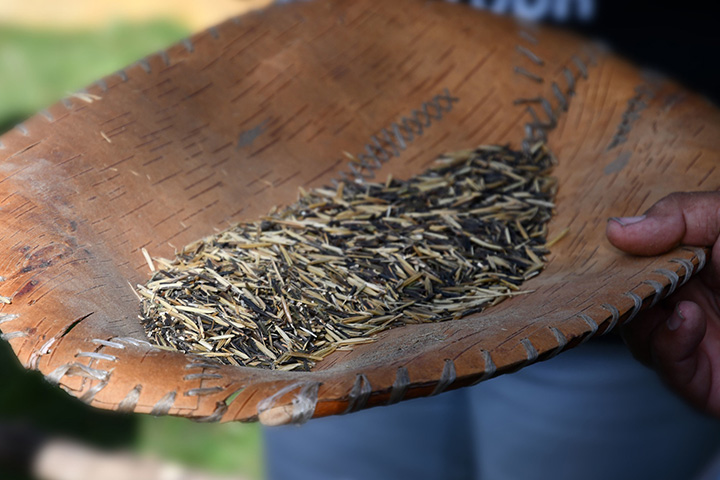Restoring Mnomen, a Step on the Path to Reconciliation
Restoring Mnomen, a Step on the Path to Reconciliation
Restoring Mnomen, a Step on the Path to Reconciliation
Program: Catalyst Grants
Program details » | All Catalyst Grants projects »

Photo credit: Todd Marsee, Michigan Sea Grant
Project Team
- David Michener - U-M Botanical Gardens (PI)
- Rebecca Hardin - U-M School for Environment and Sustainability (SEAS)
- Gregory Dowd - U-M College of Literature, Science, and the Arts (LSA)
- Benjamin Secunda - U-M Office of Research (UMOR)
- Samantha Stokes - U-M SEAS
- Maeghen Goode - U-M SEAS/TCAUP
- Scott Herron - Ferris State University
- Kyle Whyte - Michigan State University
- Manavi Jaluka - Vassar University
- Doug Taylor - Nottawaseppi Huron Band of Potawatomi
- John Rodwan - Nottawaseppi Huron Band of Potawatomi
- Eric Kerney - Nottawaseppi Huron Band of Potawatomi
- Gary Morseau - Pokagon Band of Potawatomi
- Marcus Winchester - Pokagon Band of Potawatomi
- Christine Morseau - Pokagon Band of Potawatomi
- Shannon Martin - Saginaw Chippewa Indian Tribe
- Carey Pauquette - Saginaw Chippewa Indian Tribe
- Kathy Hart - Saginaw Chippewa Tribal College
- William Johnson - Michigan Anishinaabe Cultural and Repatriation Alliance
- Alex Wieten - Match-E-Be-Nash-She-Wish (Gun Lake) Band of Potawatomi Indians
- Montana Riley - Walpole Island Cultural Center
- Roger Labine - Lac Vieux Desert
- Ricki Oldencamp - Pierce Cedar Creek Institute
- Corey Lucas - Pierce Cedar Creek Institute
- Barb Barton - author of Manoomin: The Story of Wild Rice in Michigan
Project Summary
Although mistaken for a wetland plant of only the far north, Mnomen (wild rice, Zizania aquatica Z. palustris) is a staple food for Anishinaabek peoples across the Great Lakes—including those who once made their home on lands now owned by U-M. But after centuries of ecological degradation across Michigan’s lower peninsula, Mnomen now survives in just a fraction of its former abundance.
This project—called the Mnomen Initiative—aimed to build a partnership of Anishinaabek community members, tribal nations, U-M faculty, and allies at other Michigan universities. Tribal partners contributed with time-tested traditional ecological knowledge and years of hard-earned experience in Mnomen socio-ecology, while regional wild rice experts brought the range of available current knowledge and best practices. Together, the group was able to assess the feasibility of Mnomen restoration on ten U-M properties and propose a pilot restoration project on the most appropriate site, exemplifying sustainability grounded in reconciliation principles.
News
- MBGNA Work Propels $30M NSF Center for Braiding Indigenous Knowledges and Sciences, Matthaei Botanical Gardens and Nichols Arboretum Blog, September 7, 2023
This project received a $10,000 Catalyst Grant in 2020.